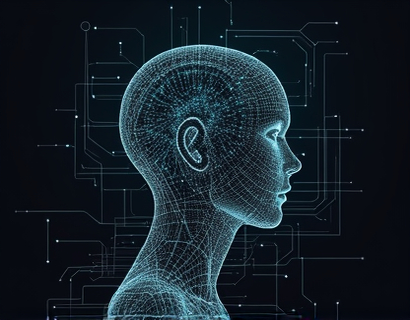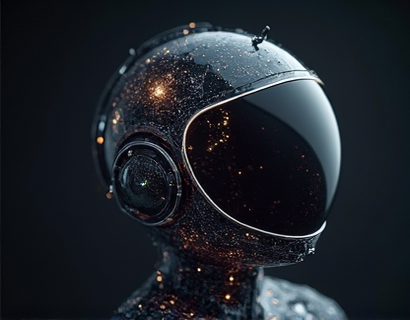Personalized AI Companions: Transforming Childhood Creativity and Emotional Well-Being with Interactive Digital Friends
In recent years, the integration of artificial intelligence in children's play and development has opened new avenues for enhancing creativity and emotional well-being. Interactive digital friends, powered by advanced AI algorithms, are becoming increasingly popular as tools to support and enrich the early years of a child's life. These AI-driven companions offer a unique blend of personalized interaction, safety, and educational value, making them a valuable addition to modern childhood.
The concept of AI companions for children is rooted in the understanding that play is a fundamental aspect of child development. Through play, children learn to express themselves, solve problems, and develop social and emotional skills. Traditional toys and games have long been used to facilitate this process, but the introduction of AI companions brings a new dimension to interactive play. These digital entities are designed to adapt to each child's unique personality, interests, and developmental stage, providing a tailored experience that fosters growth and learning.
One of the key benefits of AI companions is their ability to spark creativity. Unlike static toys, AI-driven friends can engage in dynamic conversations, tell stories, and even create art based on the child's input. This interactivity encourages children to think outside the box and explore their imagination in ways that traditional play might not. For instance, a child can collaborate with an AI companion to build a virtual world, design characters, and narrate adventures, all of which stimulate creative thinking and problem-solving skills.
Moreover, these AI companions play a crucial role in emotional development. Children often struggle to articulate their feelings and emotions, and AI companions provide a safe and non-judgmental space for expression. Through gentle prompts and empathetic responses, these digital friends help children understand and manage their emotions. For example, an AI companion might ask a child how they feel after a difficult day at school and offer comforting words or suggest activities to help them relax. This kind of emotional support can be particularly beneficial for children who may not have access to sufficient human interaction or who face challenges in expressing themselves to adults.
The safety of AI companions is another significant advantage. In a world where online safety concerns are paramount, AI-driven digital friends operate within a controlled environment that prioritizes the child's well-being. These companions are designed to follow strict guidelines to ensure that interactions are appropriate and free from harmful content. Parents and guardians can rest assured that their children are engaging in a secure and monitored digital space, reducing the risks associated with traditional online play.
Social skills development is another area where AI companions excel. Through interactive scenarios and role-playing games, children can practice communication, empathy, and cooperation. For instance, an AI companion might simulate a classroom setting where the child can practice sharing, taking turns, and resolving conflicts. These simulations provide a safe and repeatable environment for children to hone their social skills, which are essential for their future interactions with peers and adults.
The personalization aspect of AI companions is perhaps one of their most powerful features. Each companion is programmed to learn from the child's interactions, adapting its behavior and responses to better suit the individual's needs. This customization ensures that the companion remains engaging and relevant over time, unlike pre-programmed toys that offer a fixed set of experiences. As the child grows and their interests evolve, the AI companion evolves with them, providing a long-term and evolving relationship that supports continuous development.
Research has shown that children who interact with AI companions exhibit improved cognitive functions, including better memory, attention, and executive function skills. The structured yet flexible nature of these interactions challenges children to think critically and make decisions, all while receiving immediate feedback and encouragement. This combination of challenge and support creates an optimal learning environment that can complement traditional educational methods.
Furthermore, AI companions can be particularly beneficial for children with special needs or those who require additional support. These digital friends can be tailored to meet specific needs, such as providing visual cues for children with autism or offering repetitive, predictable interactions for children with anxiety. By addressing the unique challenges faced by these children, AI companions can help bridge gaps in social and emotional development, promoting inclusivity and equal opportunities for all.
The integration of AI companions into childhood also opens up new possibilities for parents and educators. These tools can serve as valuable assistants, providing insights into a child's developmental progress and suggesting activities to further enhance learning. For example, an AI companion might recommend books, games, or creative projects based on the child's interests and current stage of development. This data-driven approach allows adults to better understand and support their child's growth, fostering a collaborative relationship between technology and traditional parenting or teaching methods.
Despite the numerous benefits, it is important to consider the potential challenges and limitations of AI companions in childhood. One concern is the risk of over-reliance on digital interactions, which could potentially reduce face-to-face social interactions. To mitigate this, it is crucial to balance AI companion use with traditional play and social activities. Parents and educators should encourage a mix of digital and physical play to ensure a well-rounded development experience.
Another consideration is the ethical use of AI in children's lives. Ensuring that these companions are designed with transparency, accountability, and respect for privacy is essential. Developers must adhere to strict data protection standards and involve child psychologists and educators in the design process to create companions that are not only effective but also ethically sound.
In conclusion, AI companions represent a promising frontier in childhood development, offering personalized, safe, and educational interactions that enhance creativity and emotional well-being. By leveraging the power of AI, these digital friends provide a unique and adaptive form of play that can complement and enrich traditional childhood experiences. As technology continues to evolve, the potential for AI companions to positively impact children's lives is vast, making them an exciting and worthwhile area of exploration and investment.











































